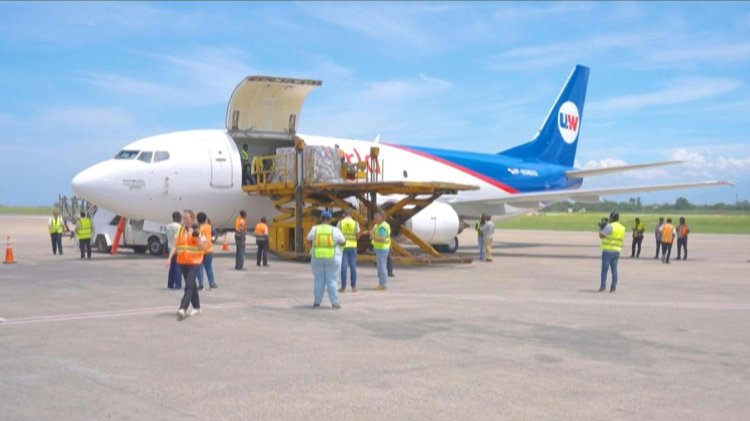UN Reports Progress in Haiti Amid Aid Distribution

The UN food agency reported "important progress" in violence-wracked Haiti with aid getting in through the reopened international airport and food distributed in the capital's largest slum.
The Caribbean nation has been ravaged for decades by poverty, disasters, unrest and gang violence. A crisis broke out in February, when gangs in the capital Port-au-Prince launched a campaign to push out then prime minister Ariel Henry.
The international airport closed in March.
"After more than two months of blockages; WFP has made important progress, delivering truckloads of food to the highly vulnerable neighborhood of Cite Soleil and also resuming use of the international airport at Port-au-Prince," the UN agency said.
Over two weeks in May, 615 metric tonnes of rice, beans, and vegetable oil were distributed to nearly 93,000 people in Cite Soleil, the World Food Programme said.
In 2022, the UN said the slum contained pockets of "catastrophic hunger".
"WFP is taking important first steps in getting humanitarian supply chains back online," said Jean-Martin Bauer, the agency's country director.
But he warned these improvements needed to be extended to the capital's hard-hit ports.
"Without sustained humanitarian access and the reopening of vital supply routes, people risk slipping even deeper into hunger," he warned.
A WFP-chartered plane with medical supplies landed in Port-au-Prince on May 30, the first UN humanitarian cargo flight since the crisis began, the Rome-based agency said.
The UN Humanitarian Air Service has also resumed passenger flights, it said.
Around half of Haiti's population, or five million people, are considered "acutely food insecure", according to the March Integrated Food Security Phase Classification report.















